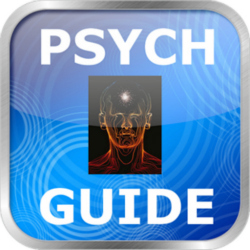
Would you save a stranger was the title of a compelling documentary which aired on Channel 4 (UK) last night. The documentary was advertized as follows:
A 12-year-old girl is beaten and stamped on by a crowd of teenagers on a crowded bus. A man is punched to the ground and kicked repeatedly in the head in an almost deserted London street. Gun-wielding robbers threaten a cashier in a petrol station.
Witnesses in five separate incidents are forced to decide - intervene and risk their own safety or disengage and turn away. Whether they choose the path of a have-a-go-hero or passive bystander, their decisions will stay with them for the rest of their lives.
In a couple of the featured incidents it seemed almost inconceivable that nobody did anything to intervene, particularly in the case of the violent attack on the young girl on the crowded bus. However, anybody who has studied psychology will recognised what happened as yet another example of the bystander effect.
The notion of a bystander effect arose from psychological research into the notorious murder of Kitty Genovese in New York in 1964. The attack on Kitty Genovese is believed to have lasted over thirty minutes, the assailant is said to have left the scene twice returning twice to continue the assault. It was reported that 38 people witnessed the attack but did nothing to help. Intrigued by the case, Princeton psychologist John Darley and his colleague Bib Latané set out to discover the factors that might explain this disturbing social apathy. According to Darley:
The key to unlocking this is the fact that 38 people failed to help us, that's what shocks us and if we picture one person looking, turning away and failing to help, another person looking, turning away, that's awful, that's terrifying, but if we realize that there were complex networks of relationships between the bystanders and the effects that this produces tend to cascade to produce no responding, then we get it and what's so terrifying turns out to be the explanatory cue.
Darley and Latané proposed that the presence of others can influence an individual's interpretation of events, particularly in "emergency" situations which can be ambiguous e.g. is that person staggering around drunk or ill? When we are in a group we look to the reactions of others for guidance as to whether we should intervene and if nobody has done anything, inaction is perceived as the correct choice. This type of bystander effect is known as Pluralistic Ignorance. Another explanatory factor is known as Diffusion of Responsibility which maintains that while an individual bystander feels that responsibilty to act rests with them, in contrast, multiple bystanders feel much less personal responsibility to act.

If you live in the UK you can watch the "Would you save a stranger?" documentary online at the Channel 4 website (it will be made available online for the next 29 days).
Click Here to watch the documentary online.
Social Psychology
Research into the bystander effect is firmly routed within social psychology. There is a page dedicated to social psychology on the main page which you can access by Clicking Here.
Please share this Psychology Blog Post with others by adding it to your social bookmarks.




www.all-about-psychology.com
A Free & Comprehensive Guide to The World of Psychology
Would You Save A Stranger? Revisiting The Bystander Effect




5 comments:
A couple months ago, I was woken up in middle of the night to a woman outside screaming for help. I am a psych student and the story of Kitty G. popped into my head at that moment, I quickly called 911. By the time the police arrived, nobody was there. I am not sure how much of a difference I made, or if they even found that woman, yet I believe when ppl are made aware of their natural reaction and are told the proper way to respond in such an incident, they WILL be more likely to act the next time around.
Hi David,
I am a producer at Cold Spring Harbor Laboratory in New York and a fan of your blog. We recently launched a neuroscience site called G2C Online. It looks at disorders such as autism, ADHD and depression and is, I think, a good psychology resource.
You can visit at www.g2conline.org.
Thanks,
John Connolly
PS. Sorry that this has nothing to do with April's fools - I couldn't find an email link.
Hi John
It's an outstanding resource. I'll do a blog post on the Genes to Cognition (G2C) website over the weekend and I'll also let people know about it via the main website.
www.all-about-psychology.com
Cheers
David
PS. I've just added a contact me link to the blog!
It comes as no surprise to me that some people wouldn't step in.
I come from a small-ish city and went to London for a job interview, when i got off the train there was a man with his wife, 2 children and a push chair. Out of the 200 people that walked past, i was the only one that offered him help with getting the chair up the stairs. So if people wouldn't help with something like that, then god help us if those same people saw a mugging.
I think there are times when it is the best decision to just phone the police though. If you saw 20 people attacking a single person and stepped in, then in all likelyhood you would just make yourself one of the victims instead of helping the other person. So i needs to be a time when not getting directly involved would be the right decision.
Hi David,
This is the first article that I have read on you blog. I found it while searching for information on a research project about the Bystander Effect. If you know of any fictional novels or non-fiction books that largely incorporate the bystander effect, could you email me?
Thank you
Post a Comment